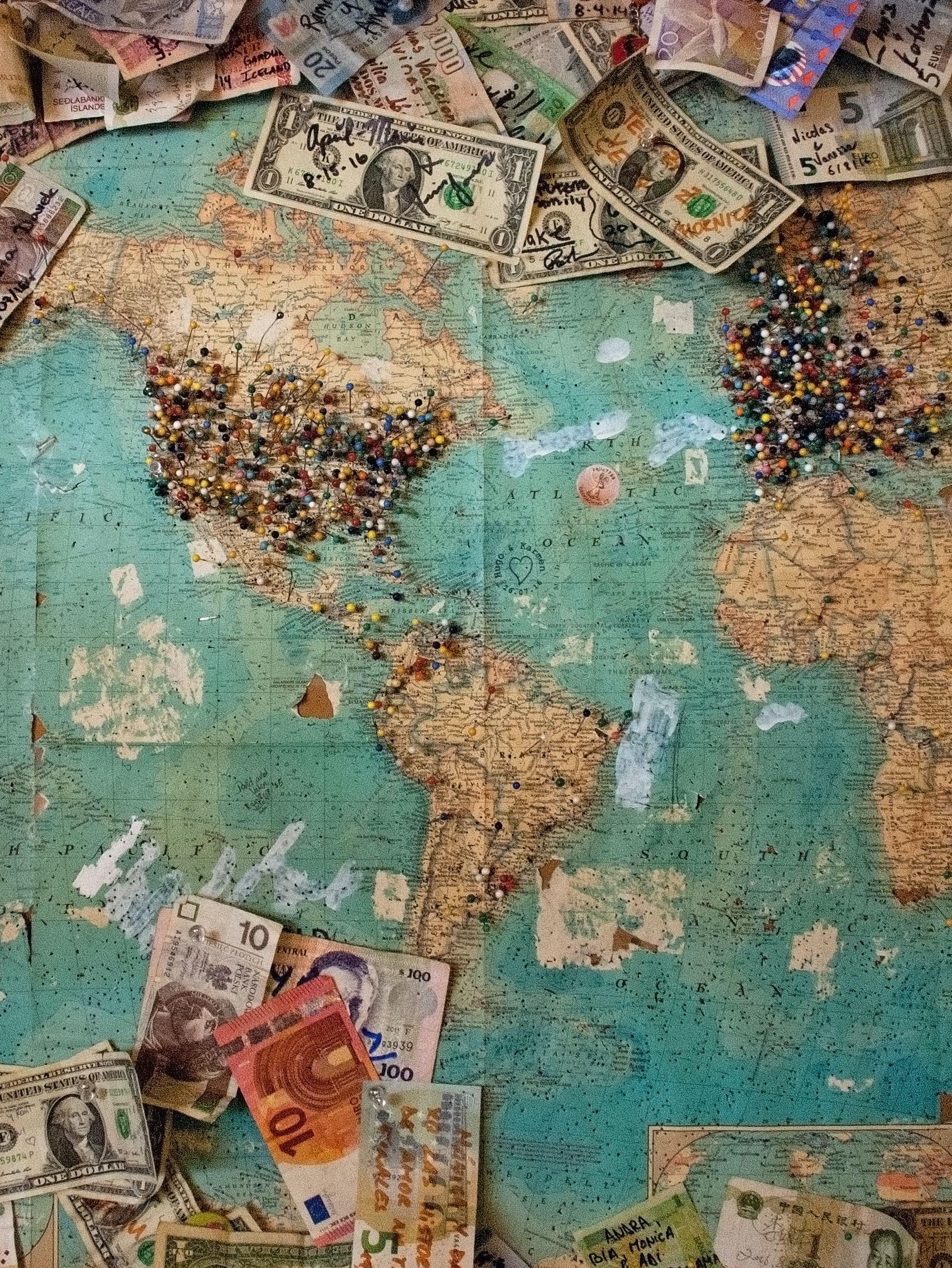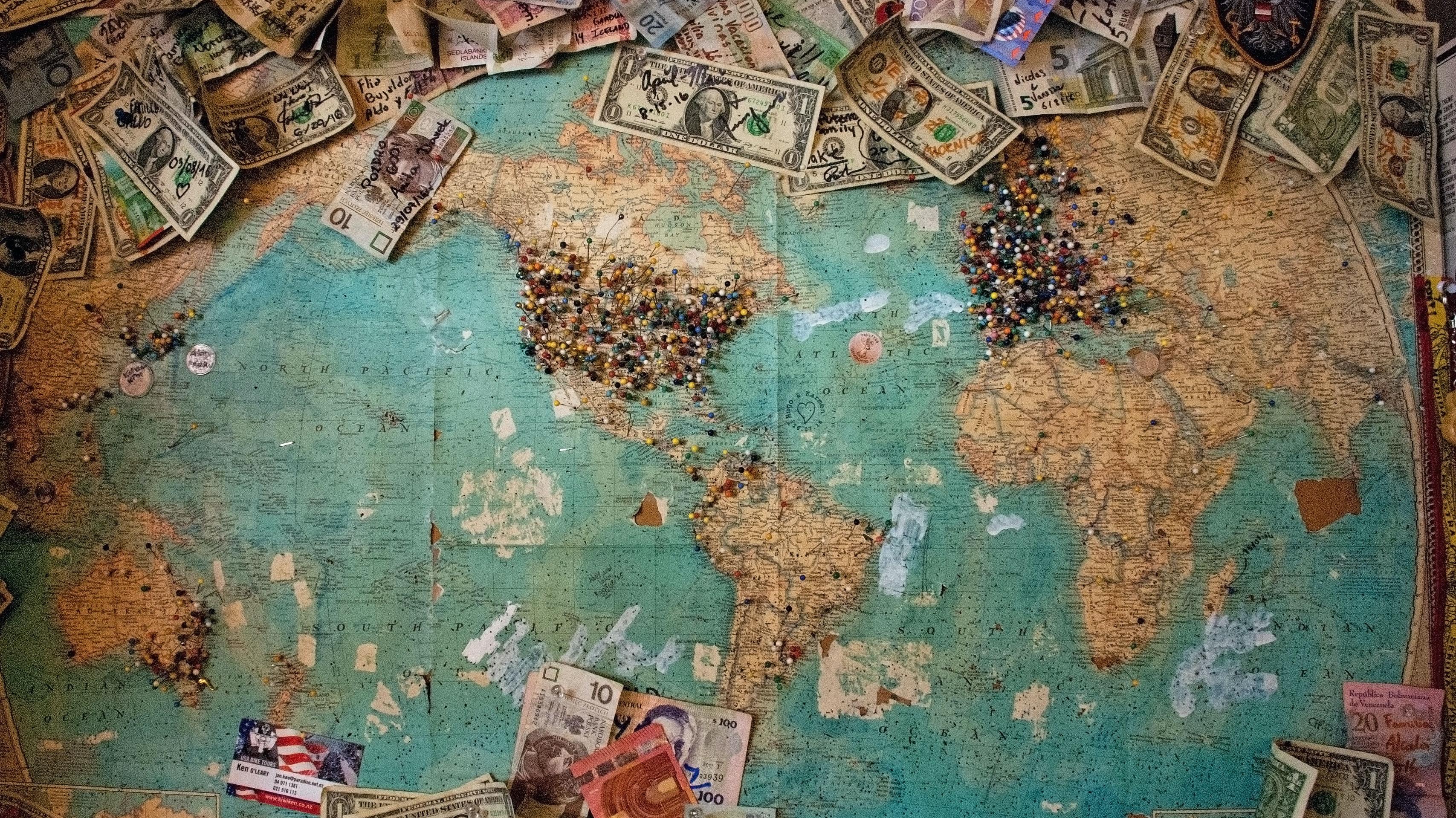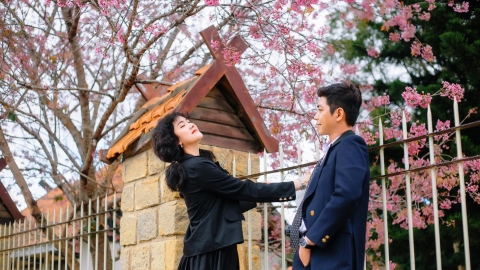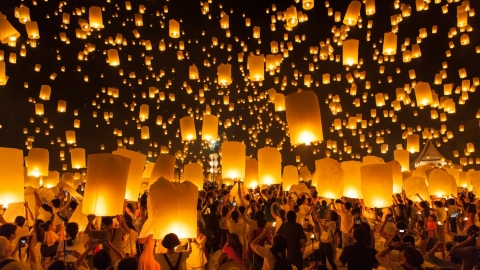The trend of foreign tourists asking locals for money to finance their trips has become a problem in Asia, especially in Southeast Asian countries like Thailand, Vietnam, Malaysia, and Indonesia.
These travelers often rely on the sympathy of locals to beg for money for their trip. This act is called begpacking, a portmantein of "beggar" and "backpacker." Some choose to carry signs with pleas for help in the local language. Others earn money by busking or selling small items.
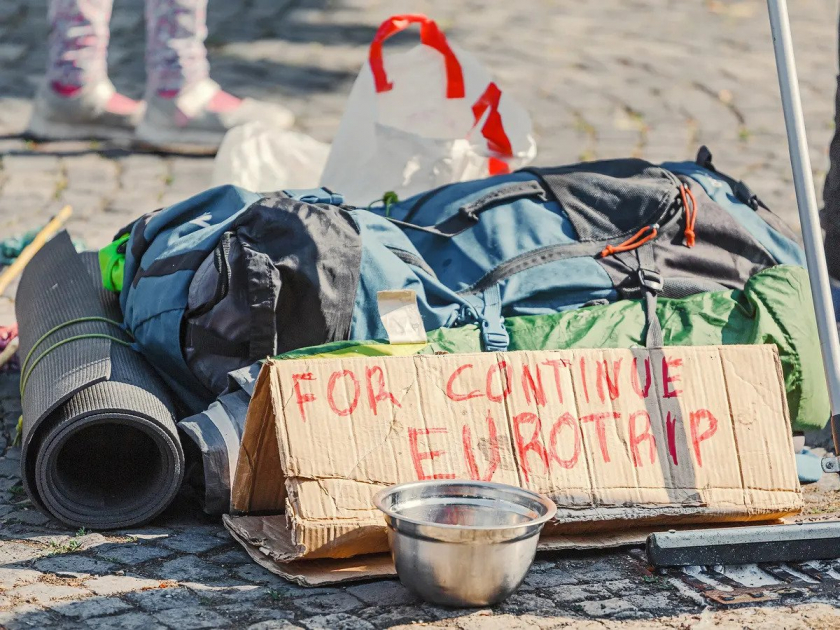
Begpacker is a portmantein of beggar and backpacker.
In the early stages of the Covid-19 pandemic, travel restrictions and strict safety measures were implemented. This led to a change in the behavior of tourist beggars. They could no longer solicit money from locals to finance their trips as before. But when the restrictions were lifted, it marked the reappearance of such groups, with the majority being tourists from the West.
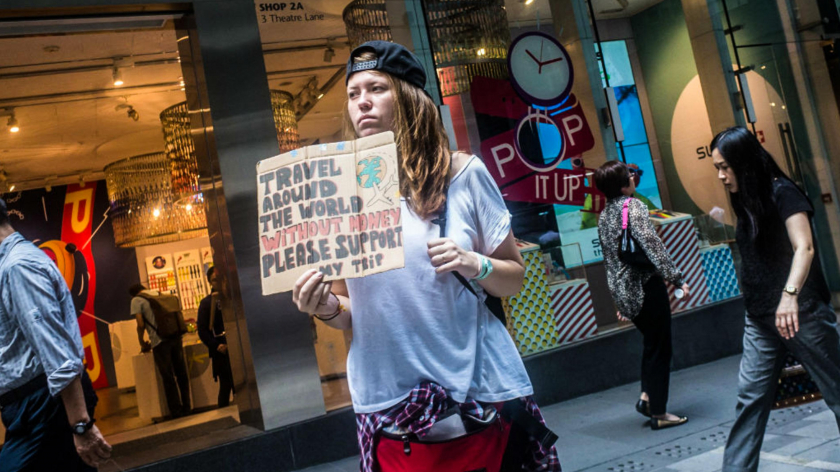
These travelers often rely on the sympathy of locals to beg for money for their trip, and this behavior is known as begpacking.
They bring only minimal budgets to Southeast Asian countries, entrusting their tourism expenses to exploiting the kindness of local people. These people shamelessly ask for money despite the lower income levels in the area.
The forms of street begging are diverse, ranging from offering "free hugs," selling a few handcrafted items, or holding up signs asking for donations to fulfill a dream of traveling around the world.
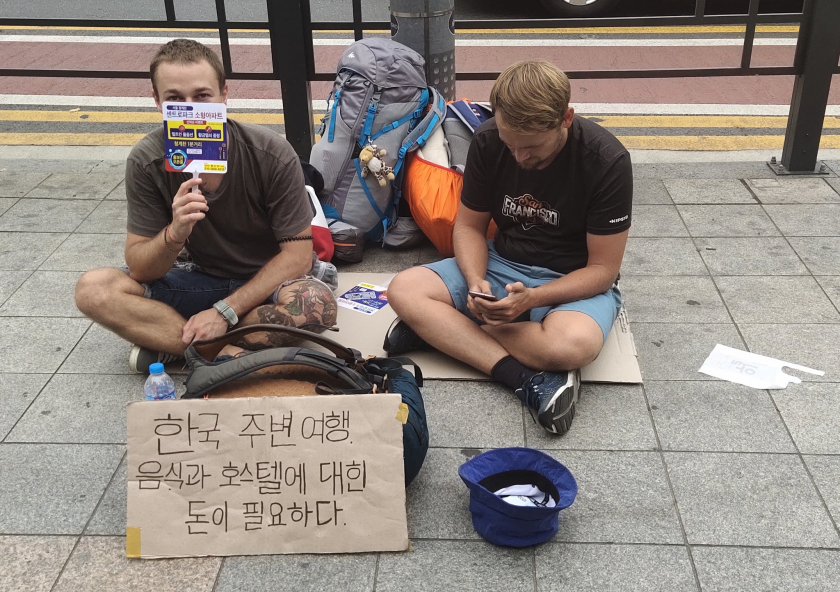
It's not uncommon to see tourists sitting and begging for money to help fund their trips at many popular tourist destinations around the world.
Begpackers often choose Asian destinations such as Vietnam, Thailand, and Hong Kong (China)... These have become the main locations for beggar tourists due to their advantageous geographical location, simple visa policies, and the generosity of the local people.
Typically, another male tourist in Thailand chose to sell photos he had taken himself during previous trips. He didn't set a specific price, letting his customers decide. Besides a sign written in the local language, he also had an advertising sign in English to attract more foreign tourists.
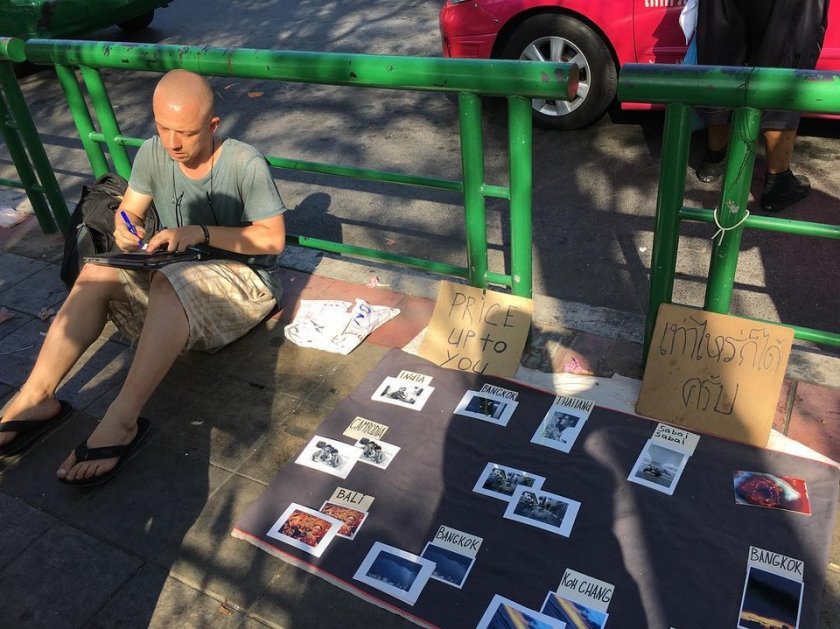
The photo shows a male tourist selling the photos he took without specifying a price.
The return of begpackers as tourist destinations reopen is becoming a major problem in Asia. Many call these tourists "shameless beggars." More simply, many beggar tourists exploit the "free hugs" trend to fund their trips. They simply go to a public place, put up a sign that says "free hugs," and ask for money. Locals may pay whatever amount they like for each hug.
Most recently, in Duong Dong ward, Phu Quoc city, Kien Giang province, three foreign men were seen holding signs asking for money. The cardboard sign read in Vietnamese: “Hello, we are from Russia. We have been traveling without money for 5 years. Please support our journey. Thank you.” Authorities in Kien Giang province have now formed a task force to go to Phu Quoc to investigate this incident.
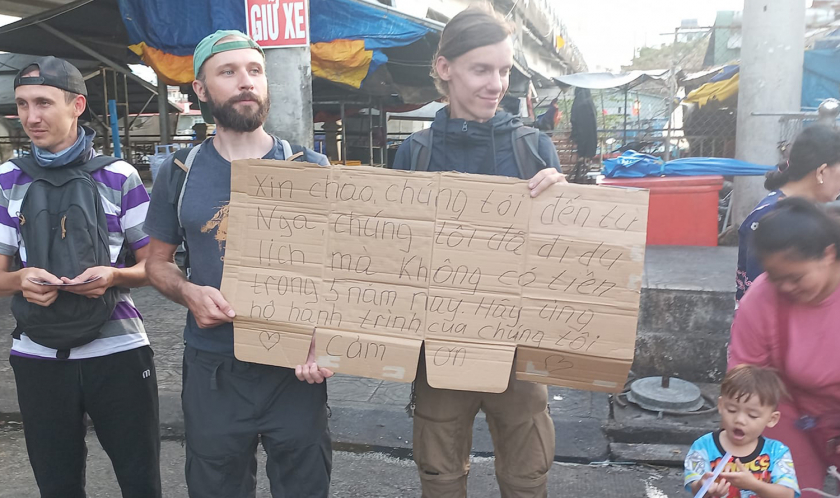
Tourists begging for money in Phu Quoc.
According to the New York Post, since 2017, Thai authorities have required international visitors to prove they have sufficient financial means to cover their trip before being allowed entry.
Customs officials at airports and border crossings may request travelers to present at least 20,000 baht (approximately 14.3 million VND) in cash. However, this regulation does not apply to all border crossings or travelers. Customs officers will make specific requests on a case-by-case basis.
In addition, in 2016, the country implemented a law against street begging, making it an illegal act. This move allows local authorities to deal with illegal beggars, both locals and foreigners, who can be detained and fined.
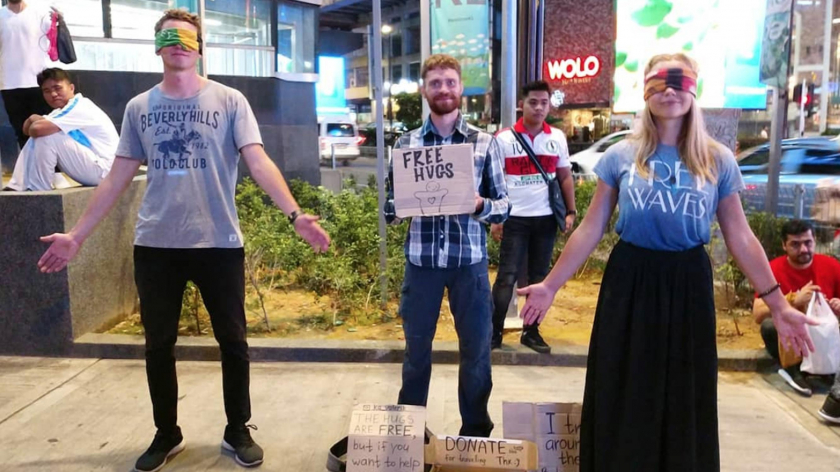
The method of asking for money through free hugs.
Meanwhile, in Singapore, begging is considered illegal. Individuals who repeatedly violate the law can face fines of over US$2,000 (approximately VND 50 million) or even imprisonment for up to two years.

 VI
VI EN
EN



